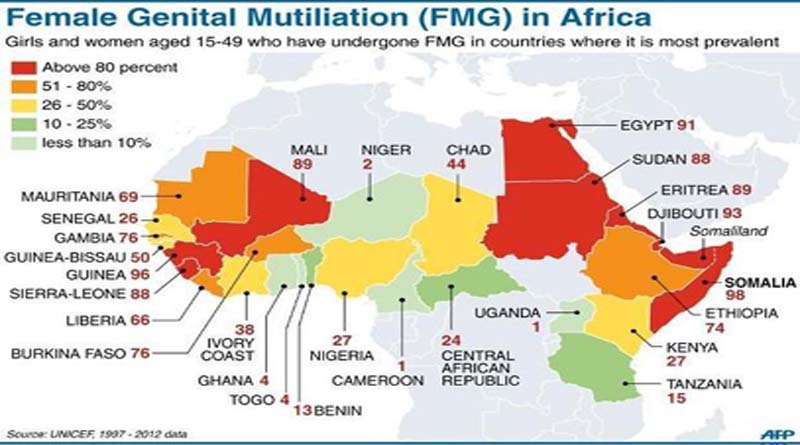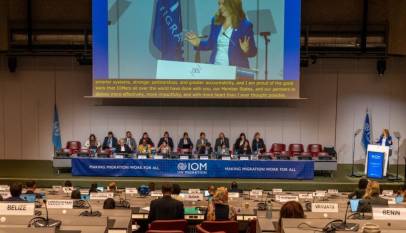Day of Zero Tolerance for FGM 2019: UN calls for increased global action against genital cutting
The global community Wednesday, observed the 2019 International Day of Zero Tolerance for Female Genital Mutilation (FGM); a UN sponsored annual awareness day focused on eradicating FGM and advocating for the rights of women worldwide.

“On this Day of Zero Tolerance, I call for increased, concerted global action to end female genital mutilation (FGM) and fully uphold the human rights of all women and girls,” says UN Secretary-General Antonio Guterres, on the occasion of the International Day of Zero Tolerance for FGM.
Female Genital mutilation (FGM) is described as all procedures that involve altering or injuring the female genitalia for non-medical reasons which is recognized internationally as a violation of the fundamental human rights of girls and women. FGM is mostly carried out on young girls between infancy and 15 years of age and constitutes an extreme form of discrimination against women and girls that can tremendously affect their physical health later in life.
The procedure is most concentrated in 29 African countries; girls 14 and younger represent 44 million of those who have been cut, with the highest prevalence of FGM among this age group being in Mali (73%); the Republic of Gambia (56%) and Mauritania at (53%), according to the UN. On the other hand, countries with the highest prevalence among girls and women aged 15-49 are Somalia (98%), Guinea (97%), Djibouti (93%), as well as Egypt (87%).
Day of Zero Tolerance for FGM was first celebrated in 2003 and is commemorated on 6 February of every year, since then. It is part of an effort by the UN to meet the targets of Sustainable Development Goal 5 (gender equality) whose target 5.3 seeks to eliminate all harmful practices, such as child, early, and forced marriages and FGM.













